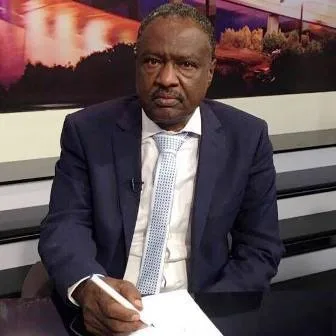Tasks Awaiting the Government

By: Rashid Abdel Rahim
When Dr Ali Al-Haj was appointed Minister of Trade in the late 1980s, he found himself in a major confrontation with producers of one of the country’s most important commodities.
I visited him for a journalistic interview, and at the end of our conversation, I remarked that those he was in conflict with held significant financial and political power, which might threaten his position in the Ministry. Behind his desk were portraits of the ministers who had preceded him, with the dates of their appointment and departure. He said to me:
“Note the dates in those pictures — I’ve studied them, and I found that the average tenure of a minister is only a few months. I’ve already surpassed that, and I will not be an exception.”
The appointment of Kamil Idris’s cabinet took time and was preceded by rounds of deliberation and crises over its composition. But by the standards of Dr Ali Al-Haj, this cabinet is no anomaly in the context of Sudan’s historically short-lived governments.
Even in Western democracies, the lifespan of presidents and governments rarely exceeds five years, except in rare cases.
For the government to achieve anything meaningful, it must first turn its attention to several pressing tasks.
There have already been negotiations around the representation of the Juba Agreement factions and the fallout from those arrangements — managing their implications will require serious effort.
Given the Prime Minister’s experience and relationships, the appointment of many academics and university professors to government roles has expanded. But since they are largely unfamiliar with the civil service, they will need support — something that could be achieved by expanding the operational space for undersecretaries and ministerial staff.
While the Prime Minister taking on the Ministry of Foreign Affairs is not unprecedented, Sudan’s current situation demands robust foreign engagement. Appointing a Minister of State could help ease the burden on the Foreign Minister, given the scope and gravity of his responsibilities.
These dynamics and their consequences place even greater responsibility on the Ministry of Information, which can help manage them with strategic policies and performance that speaks both to the Sudanese people and to the international community.
From my professional background in the media, I offer constructive input rather than direct criticism.
The returning Minister of Information, Mr Al-Eisaer, is a seasoned media figure who played a commendable and honourable role in the war for dignity.
However, the role of a minister is different from that of a journalist. And from his previous tenure, one notable observation is that the key components of the Ministry remained unchanged, and its output fell short of what is required. This can be summarised as follows:
First: The Sudan News Agency (SUNA) should be the primary source of government news domestically and the authoritative voice of Sudan abroad — but it is far from achieving that.
Second: The national television station’s success would lie in making its screen the first choice for international broadcasters seeking footage on Sudan.
It should also reflect the concerns and priorities of public opinion.
Third: Both the television and the news agency lacked war correspondents when fighting intensified — despite the possibility of being embedded with the armed forces and receiving timely updates from the battlefield, allowing them to report swiftly and in a timely fashion.
The performance of state-level correspondents has also declined significantly.
There are also observations regarding the Minister himself. He used to publish his photos and news on the official ministry platforms, extensively and prominently. He did not distinguish between his personal social media pages and the Ministry’s official accounts.
He was also in the habit of writing his own press releases in the first person, saying things like “I met with so-and-so today”, even though these were official matters and not personal ones. The appropriate phrasing would have been “The Minister of Information met with…” This indicates that ministry staff were not being given the space to carry out their professional duties properly.
Today, we face a major expansion and dominance of social media platforms, yet there is no functional link between the Ministry of Communications and the Ministry of Information. It would have been better if the two were merged into one entity, so as to bring some order to the chaos of the digital sphere — which could be more easily managed and its harms reduced under a unified structure.
Many ministries have official spokespeople, but they work in isolation, and their work lacks a unified and coherent approach that could increase their effectiveness.
Ultimately, the greatest responsibility for the success of the government and the state lies with the media.
The domestic and international goodwill enjoyed by the Prime Minister and his government should not be squandered. Their performance must contribute meaningfully to the next phase — one in which Sudan will have to face the repercussions of both internal and external wars.
Shortlink: https://sudanhorizon.com/?p=6518

